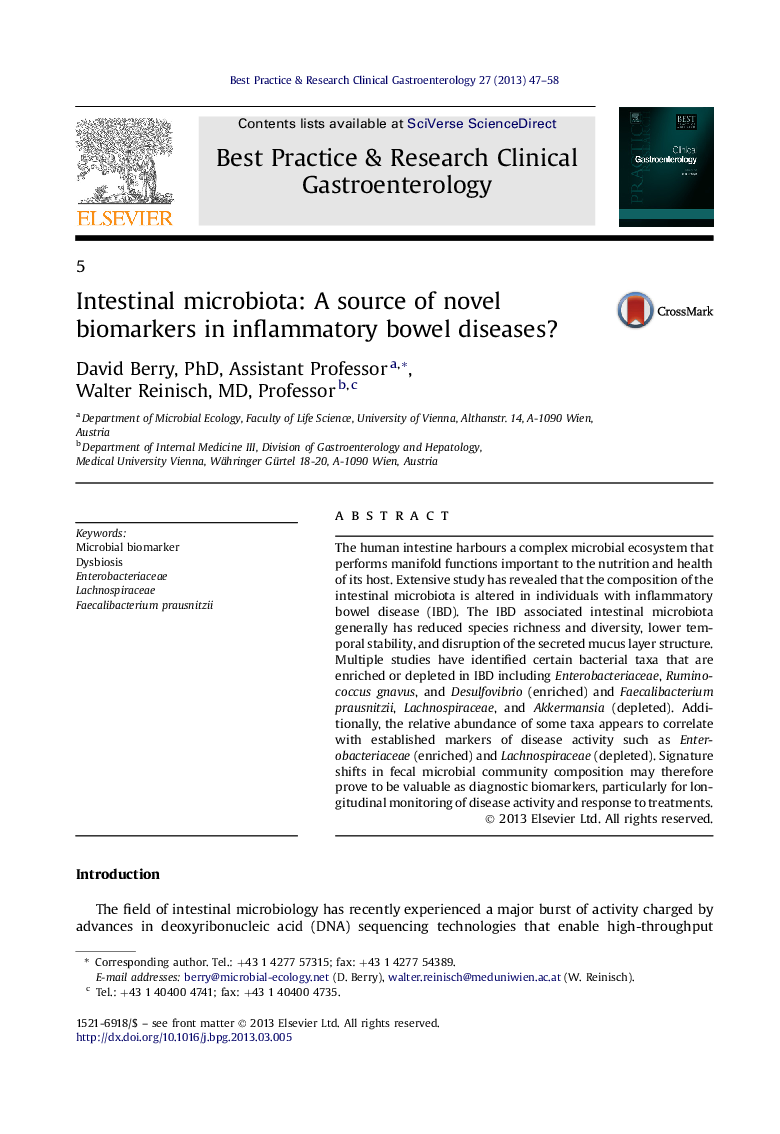| Article ID | Journal | Published Year | Pages | File Type |
|---|---|---|---|---|
| 6086367 | Best Practice & Research Clinical Gastroenterology | 2013 | 12 Pages |
The human intestine harbours a complex microbial ecosystem that performs manifold functions important to the nutrition and health of its host. Extensive study has revealed that the composition of the intestinal microbiota is altered in individuals with inflammatory bowel disease (IBD). The IBD associated intestinal microbiota generally has reduced species richness and diversity, lower temporal stability, and disruption of the secreted mucus layer structure. Multiple studies have identified certain bacterial taxa that are enriched or depleted in IBD including Enterobacteriaceae, Ruminococcus gnavus, and Desulfovibrio (enriched) and Faecalibacterium prausnitzii, Lachnospiraceae, and Akkermansia (depleted). Additionally, the relative abundance of some taxa appears to correlate with established markers of disease activity such as Enterobacteriaceae (enriched) and Lachnospiraceae (depleted). Signature shifts in fecal microbial community composition may therefore prove to be valuable as diagnostic biomarkers, particularly for longitudinal monitoring of disease activity and response to treatments.
